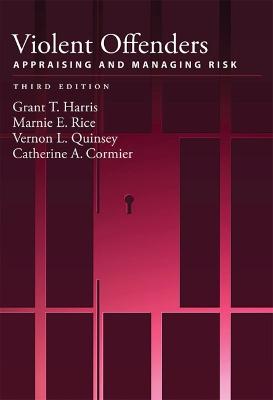Law and Public Policy/Psychology and the Social Sciences. Se
1 total work
Violent Offenders
by Grant T. Harris, Marnie E. Rice, Vernon L. Quinsey, and Catherine A. Cormier
Published 16 February 2015
Predicting future violence among criminal offenders is notoriously difficult. In the previous editions of this popular book, the authors argued that community risk management is best done with actuarial assessment. Combining what is known about violence prediction, clinical decision making, and the literature on treatment outcome and program evaluation, they introduced and chronicled the development of their landmark assessment instruments, the Violence Risk Appraisal Guide (VRAG) and Sex Offender Risk Appraisal Guide. These have become go-to resources for forensic psychologists in the trenches today.
In this third edition, the authors review the major changes in the risk assessment field, which include a much larger and richer empirical literature, a focus on dynamic risk management among supervised offenders, and commentaries on the use and effectiveness of expert clinical judgment in determining risk. Perhaps most important, they also introduce the VRAG-R, a new actuarial tool that is easier to score than the VRAG and the SORAG while delivering equally accurate results. Written with the authors’ usual clarity and keen insight, this book is a must-read for legal professionals and forensic psychologists, policymakers, and all those working with offender populations who hope to eliminate recidivism.
In this third edition, the authors review the major changes in the risk assessment field, which include a much larger and richer empirical literature, a focus on dynamic risk management among supervised offenders, and commentaries on the use and effectiveness of expert clinical judgment in determining risk. Perhaps most important, they also introduce the VRAG-R, a new actuarial tool that is easier to score than the VRAG and the SORAG while delivering equally accurate results. Written with the authors’ usual clarity and keen insight, this book is a must-read for legal professionals and forensic psychologists, policymakers, and all those working with offender populations who hope to eliminate recidivism.
